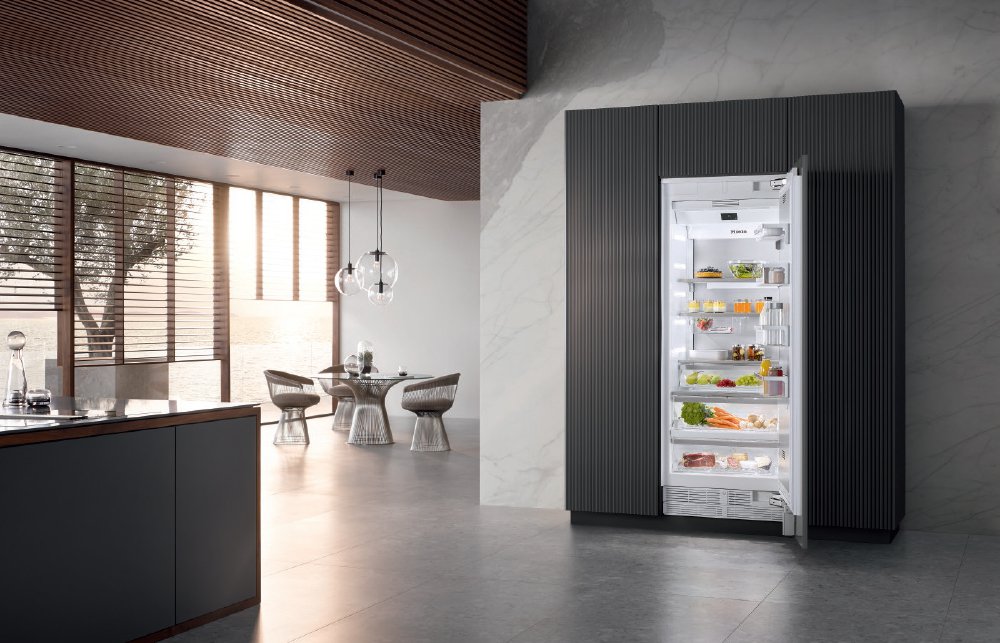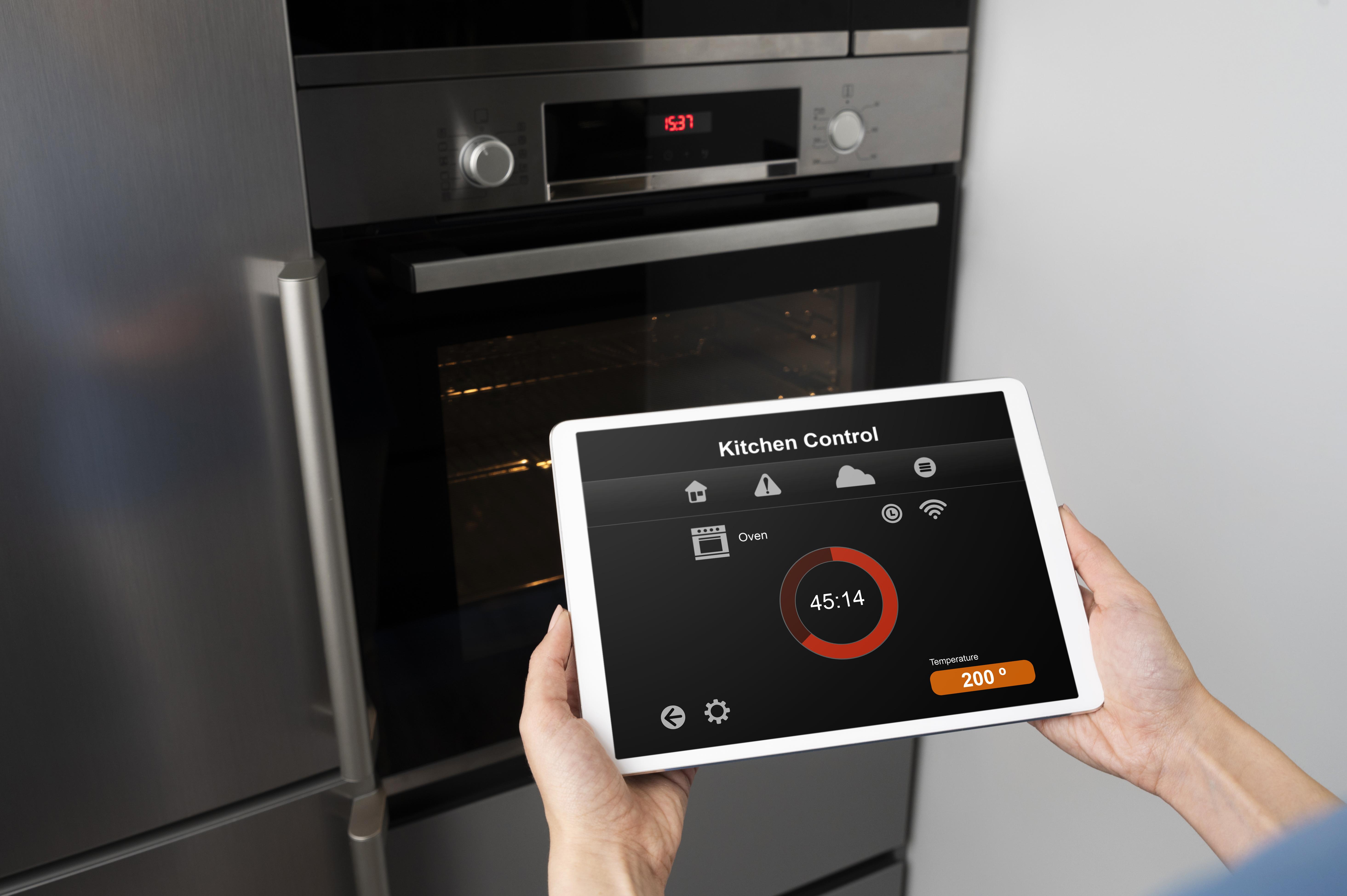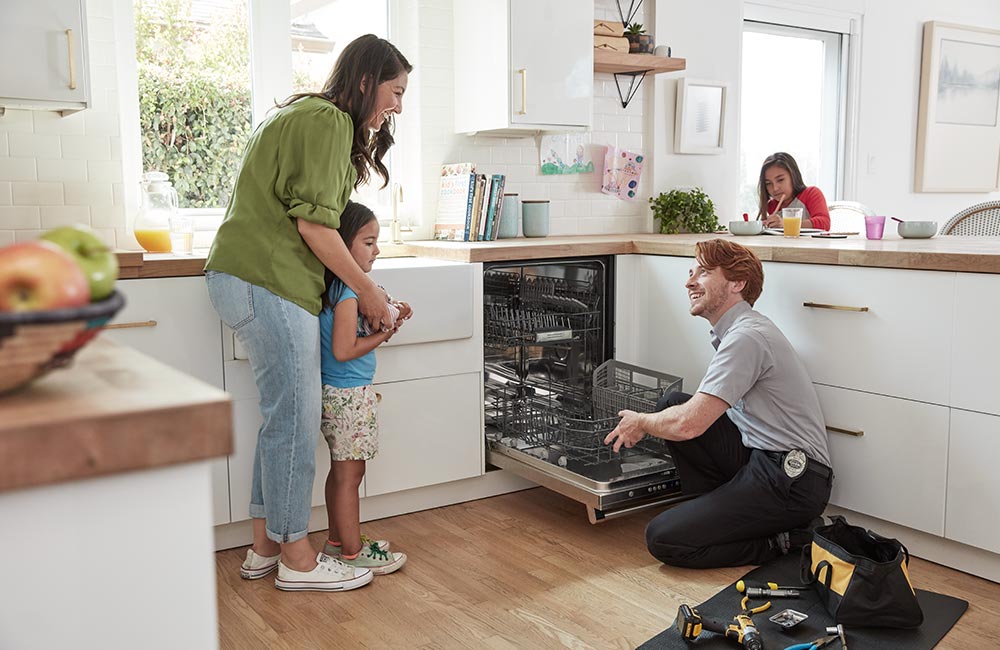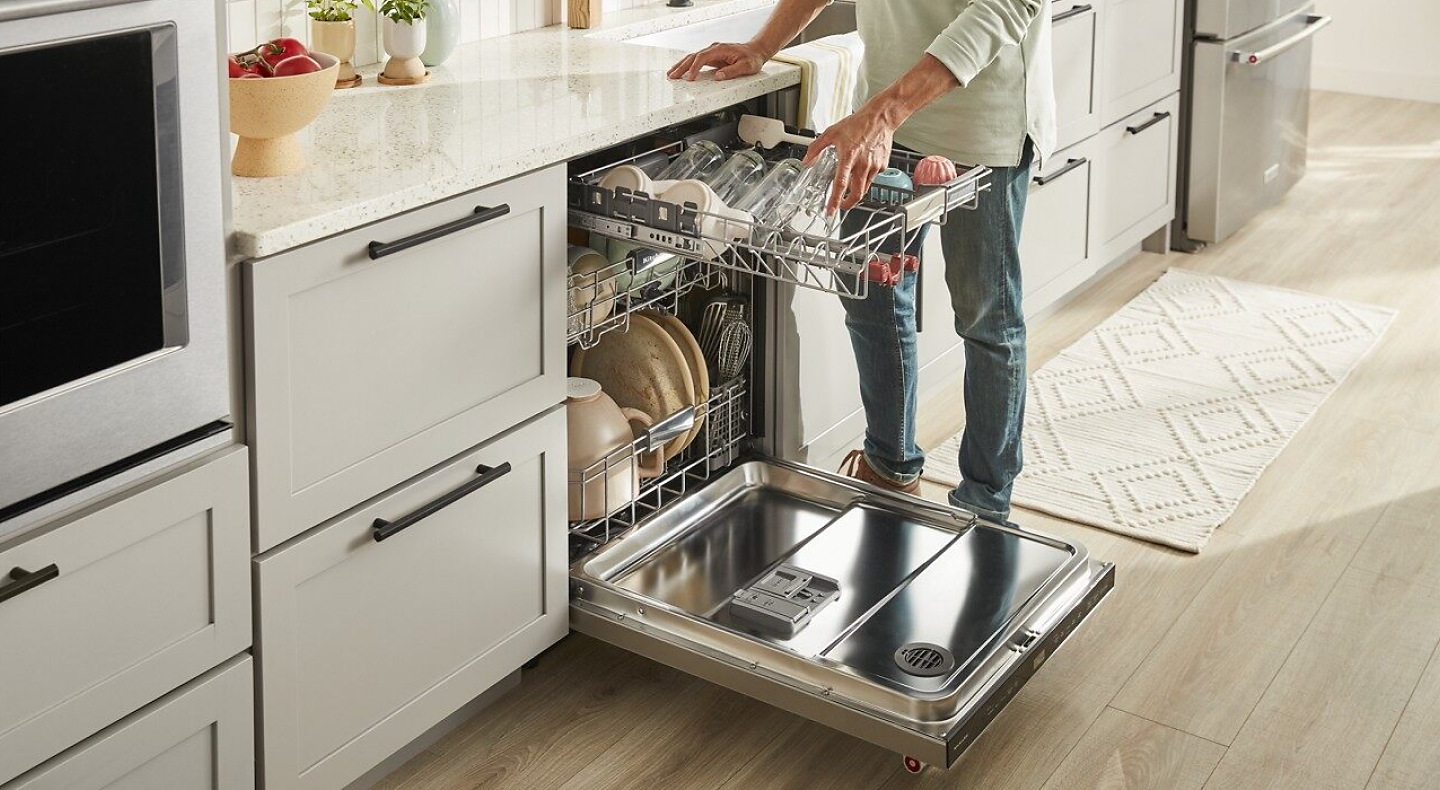Why is it important refrigerator door to close properly?
The proper closing of a refrigerator door may seem like a trivial detail, often overlooked; however, it is, in fact, a crucial element influencing several key factors. Refrigerator door seals play a vital role in areas such as energy efficiency, food safety, comfort, cleanliness, and environmental impact. In this article, we will delve into the reasons why a secure closure of the refrigerator door is so significant, examining these different facets in detail. Emphasizing this seemingly minor detail is the key to effective performance in terms of future savings, environmental considerations, and the daily user experience with modern refrigerators.
Refrigerator Door Seals: Importance for Energy Efficiency
A refrigerator's door seals might seem like a minor component, but their role in maintaining energy efficiency is paramount. These seals, typically made of rubber or similar materials, serve as a barrier between the interior and exterior of the fridge, ensuring a tight closure. This seemingly simple mechanism plays a crucial role in preserving the cool temperature inside the refrigerator, preventing energy wastage, and ultimately impacting your energy bills.
When the refrigerator door seals are compromised or not functioning optimally, cold air can escape, causing the appliance to work harder to maintain the desired temperature. This increased workload not only leads to higher energy consumption but also places additional stress on the refrigeration system, potentially shortening its lifespan.
Investing in high-quality refrigerator door seals and regularly checking for wear and tear can result in significant energy savings. Modern refrigerators often come equipped with advanced sealing technologies, such as magnetic strips and airtight gaskets, further enhancing their energy efficiency.
Moreover, a well-sealed refrigerator contributes to environmental sustainability by reducing the overall demand for energy. As energy-efficient appliances become increasingly important in the context of climate change, ensuring the proper functioning of components like door seals is a practical and impactful step toward a greener household.
In conclusion, while refrigerator door seals may seem like a minor detail, their impact on energy efficiency is substantial. By understanding and prioritizing the importance of these seals, consumers not only contribute to cost savings but also play a part in promoting a more sustainable and eco-friendly approach to appliance usage.
Food Safety: How a Properly Sealed Refrigerator Door Matters
Ensuring food safety is a critical aspect of household management, and the role of a properly sealed refrigerator door cannot be overstated in this context. The integrity of the refrigerator door seals directly correlates with the preservation of optimal conditions inside the appliance, influencing the freshness and safety of stored food items.
A well-sealed refrigerator door acts as a barrier against external contaminants, such as bacteria and odors, helping to maintain a hygienic environment for perishable goods. When the seals are compromised, the risk of temperature fluctuations increases, potentially leading to the growth of harmful microorganisms on food surfaces.
Proper sealing is particularly crucial for preserving the quality of fresh produce, dairy products, and meats. These items are highly sensitive to temperature variations, and even minor lapses in the sealing mechanism can accelerate their deterioration. Additionally, a secure door seal prevents cross-contamination between different food items, reducing the likelihood of foodborne illnesses.
Regular inspection and maintenance of the refrigerator door seals become imperative to uphold food safety standards. Consumers should be attentive to signs of wear, tear, or visible damage to the seals and promptly address any issues to ensure the longevity of both the appliance and the stored food.
In conclusion, the relationship between a properly sealed refrigerator door and food safety is direct and impactful. By recognizing the importance of this component, individuals can take proactive measures to safeguard the well-being of their families, extend the shelf life of perishable items, and reduce the risk of foodborne illnesses in the household.
Reducing Noise in Your Kitchen: Impact of a Well-Sealed Fridge Door
The kitchen is often the heart of the home, and maintaining a peaceful and quiet environment is essential for a comfortable living space. One factor that significantly contributes to the overall noise level in the kitchen is the efficiency of a refrigerator door seal.
A well-sealed fridge door plays a pivotal role in reducing noise generated by the refrigerator's cooling system. When the door seal is compromised, the motor and compressor may need to work harder to maintain the desired temperature, leading to increased operational noise. The gentle hum of a properly functioning refrigerator can easily transform into an intrusive noise if the door seal is not in optimal condition.
Modern refrigerators are designed with advanced insulation and sealing technologies to minimize operational noise. Magnetic strips and airtight gaskets ensure a tight closure, preventing unnecessary vibrations and disturbances. Homeowners looking to create a quieter kitchen space should prioritize the regular inspection and maintenance of their refrigerator door seals.
Beyond the immediate noise reduction benefits, a well-sealed fridge door contributes to a more peaceful overall living environment. It allows family members to enjoy conversations, watch television, or engage in other activities in the kitchen without the distraction of a loud refrigerator in the background.
In conclusion, the impact of a well-sealed refrigerator door on reducing noise in the kitchen cannot be overlooked. By investing in the maintenance and care of the door seals, homeowners not only create a more serene living space but also contribute to a more enjoyable and harmonious kitchen atmosphere for the entire family.
Preventing Ice Build-Up: Why a Tight Seal on the Refrigerator Door Matters
Preventing ice build-up in a refrigerator is a critical aspect of maintaining optimal performance and efficiency, and the significance of a tight seal on the refrigerator door cannot be overstated in achieving this goal.
A well-sealed refrigerator door acts as a barrier against warm, humid air from entering the appliance, which can lead to the formation of ice inside. When the seal is compromised, the warm air infiltrates the fridge, causing condensation that eventually freezes. This ice build-up not only hampers the refrigerator's ability to cool efficiently but also consumes additional energy as the appliance works harder to counteract the temperature fluctuations.
Ice accumulation inside the refrigerator can lead to a variety of issues, such as difficulty in closing the door, obstructed shelves and compartments, and even potential damage to the cooling system. A tight seal ensures that the interior remains dry and free from excess moisture, preventing the formation of ice and preserving the longevity and functionality of the appliance.
Regular inspection and maintenance of the refrigerator door seals are crucial in preventing ice build-up. Homeowners should check for any signs of wear, tears, or deformities in the seals and promptly address any issues to avoid compromising the efficiency of the appliance.
In conclusion, the importance of a tight seal on the refrigerator door in preventing ice build-up is integral to the appliance's overall functionality. By prioritizing the care of door seals, individuals not only enhance the energy efficiency of their refrigerators but also extend the lifespan of the appliance while ensuring a hassle-free and convenient food storage experience.
Smart Refrigerators: Innovations in Door Sealing Technology for Better Performance
In the era of smart homes, the evolution of kitchen appliances, particularly smart refrigerators, has revolutionized the way we perceive and interact with these essential devices. A key aspect of this transformation lies in the innovations in door sealing technology, contributing to the overall better performance of these cutting-edge appliances.
Smart refrigerators are equipped with advanced door sealing mechanisms that go beyond the conventional rubber gaskets. Magnetic strips, airtight seals, and sensor-based technologies ensure a precise and secure closure, minimizing the chances of energy wastage and temperature fluctuations. These innovations not only enhance the energy efficiency of the refrigerator but also play a crucial role in maintaining the freshness and safety of stored food items.
One notable feature in smart refrigerators is the integration of sensors that detect any anomalies in the door seal. If a door is not closed properly, users receive real-time notifications through smart applications, allowing for immediate corrective action. This not only prevents energy loss but also adds a layer of convenience and peace of mind for users.
Additionally, smart refrigerators often boast connectivity features, allowing users to monitor and control the appliance remotely. The door sealing technology in these appliances aligns with the broader goal of creating a seamless and user-friendly experience, ensuring that the refrigerator operates at its optimal level.
In conclusion, innovations in door-sealing technology have significantly contributed to the improved performance of smart refrigerators. These advancements not only cater to energy efficiency and food safety but also align with the broader trend of integrating smart technologies into our daily lives, transforming the kitchen into a hub of convenience and efficiency.








